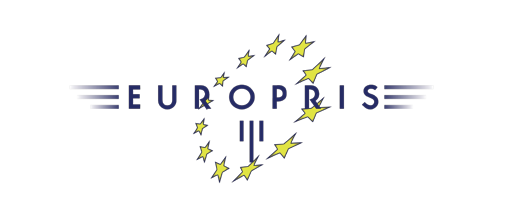 Promoting professional
Promoting professionalPrison Practice.

Click on the picture for the short video that gives an overview and introduction to the e-learning module!
To access the E-Learning Module on Managing Foreign National Prisoners please click here.
Working with foreign prisoners is an increasing challenge for European prisons. To assist prison staff, managers, prison trainers and others who work with and are responsible for foreign prisoners, an innovative and engaging on-line E-Learning course has been created by EuroPris in conjunction with the Council of Europe HELP Programme and the University of Nottingham.
The aims of this module are:
Using animations, videos, voice-overs, interactive & reflective exercises, knowledge tests and case scenarios, users are taken through a series of chapters focusing on key aspects of foreign prisoner’s experience including; effective communication, prison regime improvement, contact with the outside world, rehabilitation and resettlement issues and staff matters.
The module uses the Council of Europe’s Recommendations on Foreign Prisoners 2012(12) as a main guide along with examples of good and promising practice from prisons across Europe to illustrate how the recommendations are being implemented. The module also refers to the European Prison Rules and to reports from the European Committee for the Prevention of Torture & Inhuman or Degrading Treatment or Punishment (CPT).
To access the E-Learning Foreign Prisoners module; users need to register for a CoE HELP Account, following the simple attached guidance. Click here to see ‘How to create a HELP Account to access the EuroPris ‘Managing Foreign National Prisoners’ E-Learning Module’. The module is available in the following languages; English, French, Spanish, German, Greek and Italian.
Access to and use of the Foreign Prisoners E-Learning module is free and open to everyone. The module can be used on a self-learning basis for independent study with learners. It may also be used as part of a staff training programme, providing country or prison specific information, group presentations and discussions, completion targets, pass marks and timelines. Should such a ‘Tutored’ approach be required, EuroPris can be contacted on how this can be achieved.
Examples of good and promising practice along with other relevant resources for those working with foreign prisoners to complement the E-Learning module, will be available both on the E-Learning Module’s course page and soon, in EuroPris webpage, Resources for Working with Foreign National Prisoners in Europe https://www.europris.org/resources-for-working-with-foreign-national-prisoners-in-europe/ .
For further information on any aspect of using the E-Learning Foreign Prisoners module or adopting it as part of a prison training programme, contact the EuroPris Secretariat [email protected]
Download